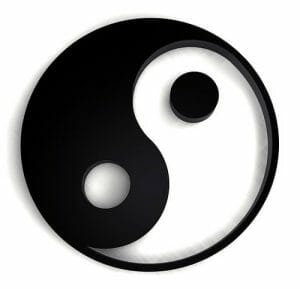Transformation is inspired from any number of directions, and sometimes from surprising places within you. That’s been true for me. One such transformation was an interesting experience, maybe because it was internally motivated.
 During a mastermind meeting, we had a go-around-the-room discussion of what changes we were going to make in our lives for the coming year. It was a fascinating discussion. When it came around to me, I don’t know what possessed me, since I hadn’t been consciously thinking of it, but one of the things I said was that I was going to cull the word “hate” from my vocabulary. It’s a powerful word that can shape your thinking and your approach to life. And that influence isn’t one I want in my life.
During a mastermind meeting, we had a go-around-the-room discussion of what changes we were going to make in our lives for the coming year. It was a fascinating discussion. When it came around to me, I don’t know what possessed me, since I hadn’t been consciously thinking of it, but one of the things I said was that I was going to cull the word “hate” from my vocabulary. It’s a powerful word that can shape your thinking and your approach to life. And that influence isn’t one I want in my life.
More interesting than my declaration was the group’s reaction. Most of the people in the group exclaimed that wasn’t possible! “You can’t do that!” was a common response. Wow! What an interesting wall of resistance I felt. I have seen similar resistance to the thought of forgiving everyone in your life.
It wasn’t easy to change my way of thinking and speaking. Hate is one of those easy words used to cover a wide array of reactions in an easy and careless way. It’s like the words “stuff” and “thing” — you get the idea but not the full message. Accuracy is often missing, too.
The technique I used to erase my use of the word was that every time I found myself thinking a sentence that had “hate” in it, I’d stop and modify the thought to be a more accurate representation of my meaning or a milder expression of what I was thinking. It was that instant correction that made the difference to the frequency that word appeared in my mind and discussions.
As my use of “hate” decreased in frequency, I found my spirit and joy lift. That was a surprise to me to witness! What a gift to myself! I could make the world a better place just by the way I thought of the things going on in my life and in the world.
I know “hate” is just a word and it’s the meaning we apply to it that makes it powerful. I’m not alone in recognizing that it’s a powerful word, though. According to definitions, whether as a noun or verb, it is an intense or passionate dislike. Hostility is a descriptor.
I recently saw a meme that touched on this subject. A saint was asked, “What is anger?” His answer was “It is a punishment we give ourselves for someone else’s mistake.” I’ll add that it’s also a punishment we give ourselves for our own mistakes. If I extrapolate to this discussion, could it be that hate is a punishment we give for mistakes made by ourselves or others?
So, why would I want to clear my vocabulary of that word? First of all, I see hate as a violent word. I want to live in a gentle world so avoiding a hateful word is a good start. There are several reasons behind my intention. My desire for precision or clarity, honesty or integrity, and being the light in the dark are the basis for changing my habit of using hate in my regular talk. There is definitely a time and place for using the word, but not nearly as much as I had found myself using it. It took a while to make headway in changing the habit of throwing it about freely, and I’m all the more peaceful for having reached my goal.
Let your words lift you to a more excellent life with the way they impact not only your mindset but also the mindset of the people you interact with. Lead with your language and your heart.

Good article. For some reason I have known this since childhood and curtailed urges to use the word. I agree, it is a powerful word, carries low vibrations and can be quite inflammatory to others when used. I try not to use the word at all. While we are on the subject of speaking ones truth with precision and integrity, a current kind of peeve for me is often hearing people of “the herd” use the catch phrase “to die for.” They are describing something that was wonderful, from food to cars to a concert or most anything really enjoyed. Seems like an oxymoron to me and, if one must use catch phrases, I would much prefer the use of the phrase, “to LIVE for,” which has a higher vibration and is closer to accurate.
It’s interesting to me that you had that insight as a child, Janet. I like your description with “low vibrations” — that covers it well; it inflames everyone who hears it, whether they recognize that or not. Low vibrations do that.
I hadn’t heard that phrase “to die for” in a very long time until you brought it up. I just heard it again today! And another one that has long made me nervous is “I could kill for…”, as “I could kill for an ice cream”. That feels like a low vibration phrase, too.
Thanks for continuing the conversation and pushing my thinking.